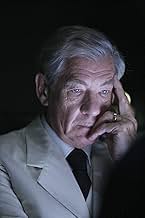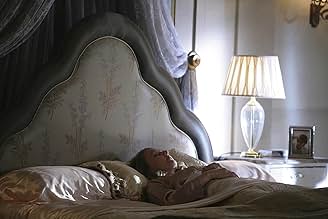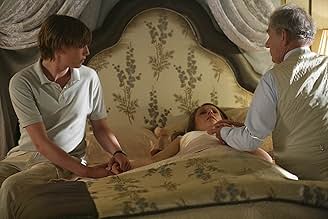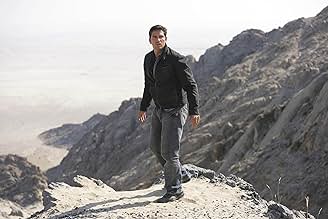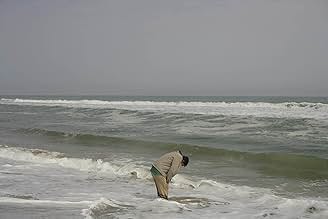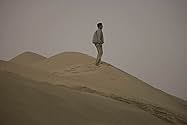The Prisoner
- Miniserie de TV
- 2009
- 45min
CALIFICACIÓN DE IMDb
6.1/10
8.2 k
TU CALIFICACIÓN
Una actualización de la serie de culto favorita de los años 60 sobre un agente del gobierno que es secuestrado y enviado a una isla remota conocida como "La Aldea".Una actualización de la serie de culto favorita de los años 60 sobre un agente del gobierno que es secuestrado y enviado a una isla remota conocida como "La Aldea".Una actualización de la serie de culto favorita de los años 60 sobre un agente del gobierno que es secuestrado y enviado a una isla remota conocida como "La Aldea".
- Nominado a 2 premios Primetime Emmy
- 10 nominaciones en total
Explorar episodios
Opiniones destacadas
Would anyone really want to see a verbatim remake of a 1960s TV series? C'mon people, spies? It's not the cold war. Let the new series explore themes of paranoia, subversion, and identity in a new, interesting, and CURRENT context. At the same time it's adding new mystery. Part of the fun is figuring out what's going on. I wouldn't want a replica mystery and therefore be spoiled. I applaud the update, its creepy, technically sound, and confusing as hell. Granted, the acting is not top notch, Caviezel is doing the best he can but can't carry it, although McKellen and Ruth Wilson are great. Is it perfect? No. But does it deserve 1-2/10 just because it doesn't mimic its predecesor? C'mon people stop living in the past.
I have been an enthusiastic follower/student of the original "The Prisoner" since the premiere episode "Arrival" had its first USA showing in May 1968. Consequently, I was looking forward to this remake/update. Unfortunately, I was so disappointed that I changed the channel about five minutes into "Harmony." It was well acted, photographed, etc., but the problems were unsurmountable.
Right off, it starts with The Prisoner awakening, but not within The Village. He is instead in a desert, which proves to be not far removed from that community. We are never given any hint of a reason why--or even how--he comes to be there. Even Number Two, in the first interrogation scene, indicates that he does not know. It may be that the producers have disposed with the superficial level storyline, which even Patrick McGoohan considered unimportant, a necessity to get Lew Grade to agree to back the series. However, I feel that it is necessary to initiate audience involvement/sympathy. Here, "they" are trying to get our nameless hero to believe that The Village and environs is the entire world, no other population centers and indeed no other people. The only information sought from him concerns an old man he met in the desert, undoubtedly intended to be played by McGoohan; he even wears Patrick's Village costume. That is resolved in this opening episode.
This version of The Village, despite its name, looks like a small city, and not architecturally distinctive/surreal like "the grounds of the Hotel Portmeirion" (the location credit on the original show's finale), which was the initial inspiration. The residents wear normal clothing instead of distinctive Village costumes; although "Number Six" sports an outfit that would not have looked particularly out of place on a "Star Trek" set, it would not get a second look on a city street, either.
People unfamiliar with the original might not have the problems I had, but I can not guarantee that. For myself, I am done with this program.
Right off, it starts with The Prisoner awakening, but not within The Village. He is instead in a desert, which proves to be not far removed from that community. We are never given any hint of a reason why--or even how--he comes to be there. Even Number Two, in the first interrogation scene, indicates that he does not know. It may be that the producers have disposed with the superficial level storyline, which even Patrick McGoohan considered unimportant, a necessity to get Lew Grade to agree to back the series. However, I feel that it is necessary to initiate audience involvement/sympathy. Here, "they" are trying to get our nameless hero to believe that The Village and environs is the entire world, no other population centers and indeed no other people. The only information sought from him concerns an old man he met in the desert, undoubtedly intended to be played by McGoohan; he even wears Patrick's Village costume. That is resolved in this opening episode.
This version of The Village, despite its name, looks like a small city, and not architecturally distinctive/surreal like "the grounds of the Hotel Portmeirion" (the location credit on the original show's finale), which was the initial inspiration. The residents wear normal clothing instead of distinctive Village costumes; although "Number Six" sports an outfit that would not have looked particularly out of place on a "Star Trek" set, it would not get a second look on a city street, either.
People unfamiliar with the original might not have the problems I had, but I can not guarantee that. For myself, I am done with this program.
Yikes. I don't know what standards The Prisoner is being compared to by other reviewers (other than obviously the original series, which is completely different). While not absolutely stellar, it certainly is superior to almost everything out there on network TV. While it's sometimes difficult to figure out where the four first hours are going, the last two hours are really delivered with the tone of cerebral and philosophical thriller that chillingly ties the mini-series together. I thought the Prisoner's social commentary on the balance between impersonal technology and personal consciousness which is hammered home in the ending sequences was especially effective. The acting level was also certainly above network TV level -- McKellen giving a creepy performance that ultimately becomes understandable as No. 2, and Cazieval, who likes many of his other roles, brings a humanity to character who doesn't quite understand what is going on to him. There are certainly flaws in the production and scripting, but if you come with an open mind and not prepared to judge the series in the context of the original series, I think it's a worthwhile investment of the viewer's time.
OK, I get the concept that the AMC production is in no way a sequel-type update to the 60's TV show. No argument there.
But--and I am sincere--can anyone actually provide me (and probably MANY others) with a detailed story line? A CLEAR plot summary? The writers/producers obviously wanted to keep viewers guessing and engaged, but there was never enough detail to determine which were flashbacks and which were...something else. And the last chapter was way too obtuse. It's fine that parts of the series wanted to comment on grand themes and deep societal concepts like the original did, in a modern way, but a more sharply-defined story line could easily do that, and probably hold everyone's attention longer. (Note: I can't buy into any explanation that says "It was all an allegory...it's whatever you think it means." There was enough of that already built-in to each episode.)
The pacing was awfully slow. The whole story could have been told well in 4 hours instead of 6. I found myself starting to want more unexplained holes in the sand and explosions just to pick up the action a bit.
You don't suppose that this was all an evil trick, the creation of a wicked team, to get us to watch all the episodes and then realize that WE were the prisoners for six hours?
But--and I am sincere--can anyone actually provide me (and probably MANY others) with a detailed story line? A CLEAR plot summary? The writers/producers obviously wanted to keep viewers guessing and engaged, but there was never enough detail to determine which were flashbacks and which were...something else. And the last chapter was way too obtuse. It's fine that parts of the series wanted to comment on grand themes and deep societal concepts like the original did, in a modern way, but a more sharply-defined story line could easily do that, and probably hold everyone's attention longer. (Note: I can't buy into any explanation that says "It was all an allegory...it's whatever you think it means." There was enough of that already built-in to each episode.)
The pacing was awfully slow. The whole story could have been told well in 4 hours instead of 6. I found myself starting to want more unexplained holes in the sand and explosions just to pick up the action a bit.
You don't suppose that this was all an evil trick, the creation of a wicked team, to get us to watch all the episodes and then realize that WE were the prisoners for six hours?
This is a completely unique interpretation of The Prisoner (1967), so if you are expecting a remake, it will disappoint you. I was an avid viewer of the original. While it shares some imagery and key aspects, beyond that this is a standalone original TV series. Instead (and for some context), imagine what sort of world you live in now, and that someone kidnaps you and you wake up in a mythical village. The question then is why? These changes are not always bad things.
The narrative structure is except for the last episode, also different. The original had concrete narrative blocks, which meant each episode had some clarity. In this series there is no obvious individual narrative block in each episode, the plots run around semi-randomly, only pose questions and don't answer them. The last episode is ironically clearer than the original series, but still leaves the viewer with some sense of confusion. Also, this series only works if you watch it until the end. The dialogue is ok, occasionally very good, but often seems a little too contrived.
Many of the themes from the original series remain such as identity, individuality etc, but perhaps because of the more modern style feel lost or half hearted. There is too much going on, and as a result it lacks depth. This series is from 2009, with a different acting style to the 1960s. Back in those days, stage style acting often appeared on TV, and the original series was no exception to this. Sometimes this worked, other times it was just over the top. Fast forward to this version and the acting is more consistent and suited to the small screen. As ever, Ian McKellen does an excellent job. Jim Caviezel is 90% there. His acting sometimes shines, but it lacks the consistent, excellent performance that you get from McKellen. It feels like he just needs more rehearsal and an injection of some spontaneity now and again. Otherwise his performance and those of the supporting cast is consistent, good but lacks buzz. It feels unfair to compare everyone in The Prisoner to someone such as Ian McKellen, but you just can't help it. In reality, he just lacked a comparable sparring partner in this series.
Image is everything, and the sets and locations are as impressive as the original series. Perhaps more menacing is the sheer similarity of most houses except for the Palace of No. 2. This serves to make the feeling of forced conformity clearer. The design team did an excellent job, with one notable exception, The Clinic; it just feels lame in terms of interior and exterior. There are some occasional references to the original series.
Overall, this series is watchable. Not bad, but just not as good as it could have been. The writing and episode structures are just too confusing and will put many people off. This is a great pity, as its ending is no less clever than the original, only different. Try to get to the end and you will get some reward. This series just tries to hard which is why it doesn't quite make it.
The narrative structure is except for the last episode, also different. The original had concrete narrative blocks, which meant each episode had some clarity. In this series there is no obvious individual narrative block in each episode, the plots run around semi-randomly, only pose questions and don't answer them. The last episode is ironically clearer than the original series, but still leaves the viewer with some sense of confusion. Also, this series only works if you watch it until the end. The dialogue is ok, occasionally very good, but often seems a little too contrived.
Many of the themes from the original series remain such as identity, individuality etc, but perhaps because of the more modern style feel lost or half hearted. There is too much going on, and as a result it lacks depth. This series is from 2009, with a different acting style to the 1960s. Back in those days, stage style acting often appeared on TV, and the original series was no exception to this. Sometimes this worked, other times it was just over the top. Fast forward to this version and the acting is more consistent and suited to the small screen. As ever, Ian McKellen does an excellent job. Jim Caviezel is 90% there. His acting sometimes shines, but it lacks the consistent, excellent performance that you get from McKellen. It feels like he just needs more rehearsal and an injection of some spontaneity now and again. Otherwise his performance and those of the supporting cast is consistent, good but lacks buzz. It feels unfair to compare everyone in The Prisoner to someone such as Ian McKellen, but you just can't help it. In reality, he just lacked a comparable sparring partner in this series.
Image is everything, and the sets and locations are as impressive as the original series. Perhaps more menacing is the sheer similarity of most houses except for the Palace of No. 2. This serves to make the feeling of forced conformity clearer. The design team did an excellent job, with one notable exception, The Clinic; it just feels lame in terms of interior and exterior. There are some occasional references to the original series.
Overall, this series is watchable. Not bad, but just not as good as it could have been. The writing and episode structures are just too confusing and will put many people off. This is a great pity, as its ending is no less clever than the original, only different. Try to get to the end and you will get some reward. This series just tries to hard which is why it doesn't quite make it.
¿Sabías que…?
- Trivia"Be seeing you" is a commonly-heard phrase in El prisionero (1967), this movie, and was also one of Patrick McGoohan's catchphrases in Alta tensión (1960) and Contraespionaje (1964) . McGoohan's character "Johnny Cousin" (a pot-smoking drummer) in All Night Long (1962) uses the phrase also when he says goodbye to the road manager "Berger" towards the end of the movie.
- ConexionesFeatured in A Six Hour Film Shot in 92 Days: The Diary of 'The Prisoner' (2010)
Selecciones populares
Inicia sesión para calificar y agrega a la lista de videos para obtener recomendaciones personalizadas
- How many seasons does The Prisoner have?Con tecnología de Alexa
Detalles
- Fecha de lanzamiento
- País de origen
- Sitio oficial
- Idioma
- También se conoce como
- Ув'язнений
- Locaciones de filmación
- Productoras
- Ver más créditos de la compañía en IMDbPro
- Tiempo de ejecución45 minutos
- Color
- Relación de aspecto
- 1.78 : 1
Contribuir a esta página
Sugiere una edición o agrega el contenido que falta



